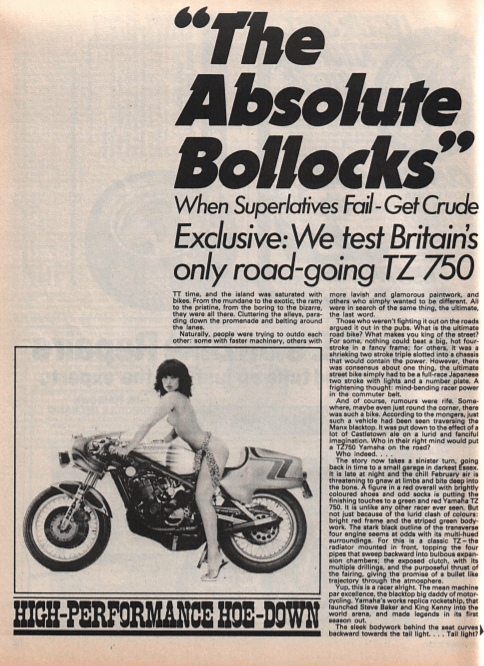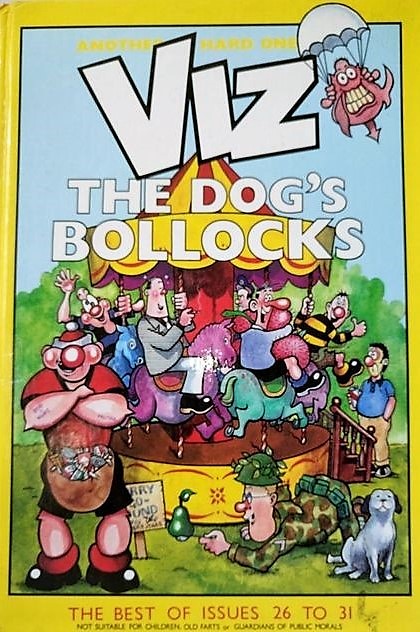The British-English slang phrase the dog’s bollocks, also the bollocks, means the very best, the acme of excellence.
(Remark: I have presented the origin of American-English synonyms such as the bee’s knees and the frog’s eyebrows in “the cat’s whiskers”, and all that jazz.)
The Oxford English Dictionary (3rd edition – 2008) says that the bollocks is a shortening of the dog’s bollocks. However, since the latter phrase is attested in 1986, and the former in 1981, it is also possible that the bollocks actually predates the dog’s bollocks as a superlative.
POSSIBLE ORIGIN
The origin of this use of the dog’s bollocks/the bollocks is obscure. However, an explanation was given in Volume 1: A – I of The New Partridge1 Dictionary of Slang and Unconventional English (Routledge, 2006), by Tom Dalzell and Terry Victor:
dog’s bollocks; dog’s ballocks; the bollocks noun
anything considered to be the finest, the most excellent, the best UK, 1989
Derived from the phrase ‘It sticks out like a dog’s ballocks’2 said of something that the speaker considers obvious, hence the sense of ‘someone or something that sticks out from the rest’.
The same edition mentioned the use of dog’s ballocks in a different sense:
dog’s ballocks noun
in typography, a colon dash (:—) UK, 1961
1 The New-Zealand born lexicographer Eric Honeywood Partridge (1894-1979) first published A Dictionary of Slang and Unconventional English in 1937.
2 In this respect, it is interesting to remark that the British-English phrase a racing dog’s bollocks, attested in 1988, denotes something that protrudes.
For the explanation given in The New Partridge Dictionary to be plausible, the phrase it sticks out like a dog’s ballocks must predate the use of the dog’s bollocks/the bollocks in the sense ‘the most excellent’. This is possible, because:
– the bollocks is attested in this sense in 1981, the dog’s bollocks in 1986;
– it sticks out like a dog’s ballocks is recorded in the 8th edition (Routledge, 1984) of Eric Partridge’s A Dictionary of Slang and Unconventional English, edited by Paul Beale—this signifies that it sticks out like a dog’s ballocks predates the 8th edition by several years (Paul Beale goes as far as writing that it dates from “ca. 1920”, but without giving any attestation).
The following are the entries dog’s ballocks and dog’s prick in the 8th edition (Routledge, 1984) of Eric Partridge’s A Dictionary of Slang and Unconventional English, edited by Paul Beale—incidentally, dog’s prick is absent from the above-mentioned edition of The New Partridge Dictionary of Slang and Unconventional English:
dog’s ballocks. The typographical colon-dash (:—): C. 20. See dog’s prick.—2. Esp. in the phrase ‘It sticks out like a dog’s ballocks’, said of something that the speaker considers is patently obvious: low: since ca. 1920.
[…]
dog’s prick. An exclamation mark: authors’ and journalists’: C. 20.
In the 3rd edition (Routledge & Kegan Paul Ltd., 1949) of A Dictionary of Slang and Unconventional English, Eric Partridge had recorded dog’s ballocks only in the sense ‘colon-dash’:
dog’s ballocks. The typographical colon-dash (:—): C. 20. Cf. dog’s prick.
[…]
dog’s prick. An exclamation mark: authors’ and journalists’: C. 20.
EARLIEST INSTANCE OF THE BOLLOCKS
The phrase the bollocks is first recorded as an expression of praise for the Yamaha TZ750 in the British magazine Super Bike of September 1981:
“The Absolute Bollocks”
When Superlatives Fail – Get Crude
Exclusive: We test Britain’s only road-going TZ 750
EARLIEST INSTANCES OF THE DOG’S BOLLOCKS
The earliest known occurrence of the dog’s bollocks is from—or related to—the 1986 version of The Gambler, a musical by Peter Brewis, Bob Goody and Mel Smith, first staged at Hampstead Theatre, London, on 15th April of that year. The quotation in the 3rd edition of the Oxford English Dictionary is as follows:
in P. Brewis et al. Gambler (cassette tape sleeve notes): ‘They are of the opinion that, when it comes to Italian opera, Pavarotti is the dog’s bollocks.’
And, in Kick the Bucket and Swing the Cat: The Balderdash & Piffle Collection of English Words, and their Curious Origins (BBC Books, 2008), Alex Games explains:
Peter Brewis […] told us of a play he wrote called The Gambler (along with Mel Smith and Bob Goody) which includes the immortal line ‘when it comes to Italian opera, Pavarotti is the dog’s bollocks’.
The phrase the dog’s bollocks then appeared as the title of the annual issue of the British comic magazine Viz for 1989:
ANOTHER HARD ONE
VIZ
THE DOG’S BOLLOCKS
THE BEST OF ISSUES 26 TO 31
NOT SUITABLE FOR CHILDREN, OLD FARTS OR GUARDIANS OF PUBLIC MORALS
The Liverpool Echo (Liverpool, Lancashire, England) mentioned that annual issue of Viz on Saturday 16th December 1989:
Top Ten on Merseyside
•B•O•O•K•S•1, The Greatest Batman Stories Ever Told, 2. The Pocket Wine Guide, Hugh Johnson, 3. Red Dwarf, Grant Naylor, 4. The Dogs [sic] Bollocks, VIZ Comic, 5. Bygone Merseyside, Derek Whale, 6. The Book Of Crap Jokes, VIZ Comic, 7. Demon Lord Of Karanda, David Eddings, 8. Delia Smith’s Complete Illustrated Cookery, 9, The Ginger Tree. Oswald Wynd, 10, Foucault’s Pendulum. Umberto Eco,
The earliest occurrence of the dog’s bollocks that I have found is from Desert rations keep the rats happy in Mandalay Drive, by David Sharrock, published in The Guardian (London and Manchester, England) of Friday 7th December 1990—the author reported from a British base somewhere in the eastern Arabian desert:
An invitation to lunch with the “Lowland Gunners,” 40 Field Regiment, was how the Desert Rats intended to dispel a few hoary old myths about army chow.
Maybe it was something they put in the ill-famed compo rations, upon which the press stuffed themselves yesterday, but some of the 1,030 members of the Royal Artillery were enthusing about their new habitat.
“It’s the dog’s bollocks,” grinned Gunner Mark Sparrow, aged 20, from Swindon. “It’s great, this is what I joined up for. I like everything about it, the weather, the sense of urgency.”




A friend of mine invented the saying “the dog’s bollocks” in the very early 1980s; his name is Dave Livermore; he resides in Crawley at the present.
LikeLike
First verbal use of “the dog’s bollocks” to mean the very best off came in 1985 by David Livermore .
Go on YouTube and look up Balderdash and Piffle series 2 episode 2. Mr Livermore explains at the end of the episode.
LikeLike
No. The origin comes from the child’s toy Meccano. In the early 1920’s it was sold in two boxed sets – the cheaper labelled Box (standard), the more expensive as Box (Deluxe)
This gave rise to two phrases: Box (standard) became turned into Bog Standard – the normal or unexceptional version, and then Bog Deluxe, which quickly got spoonerised for humourous effect to Dog Bollux and then Dog’s Bollocks (the premium or high quality version). Both were common in speech by the late 1930’s – but obviously rarely printed, as they were rude.
LikeLike
The dogs bollocks comes from cockney rhyming slang.
It’s based on Meccano, which made two sets, the normal set or “Box standard” and theore expensive “Box deluxe”.
Hence “Bog standard” and “Dogs bollocks”.
LikeLike
Cf. this previous comment.
LikeLike